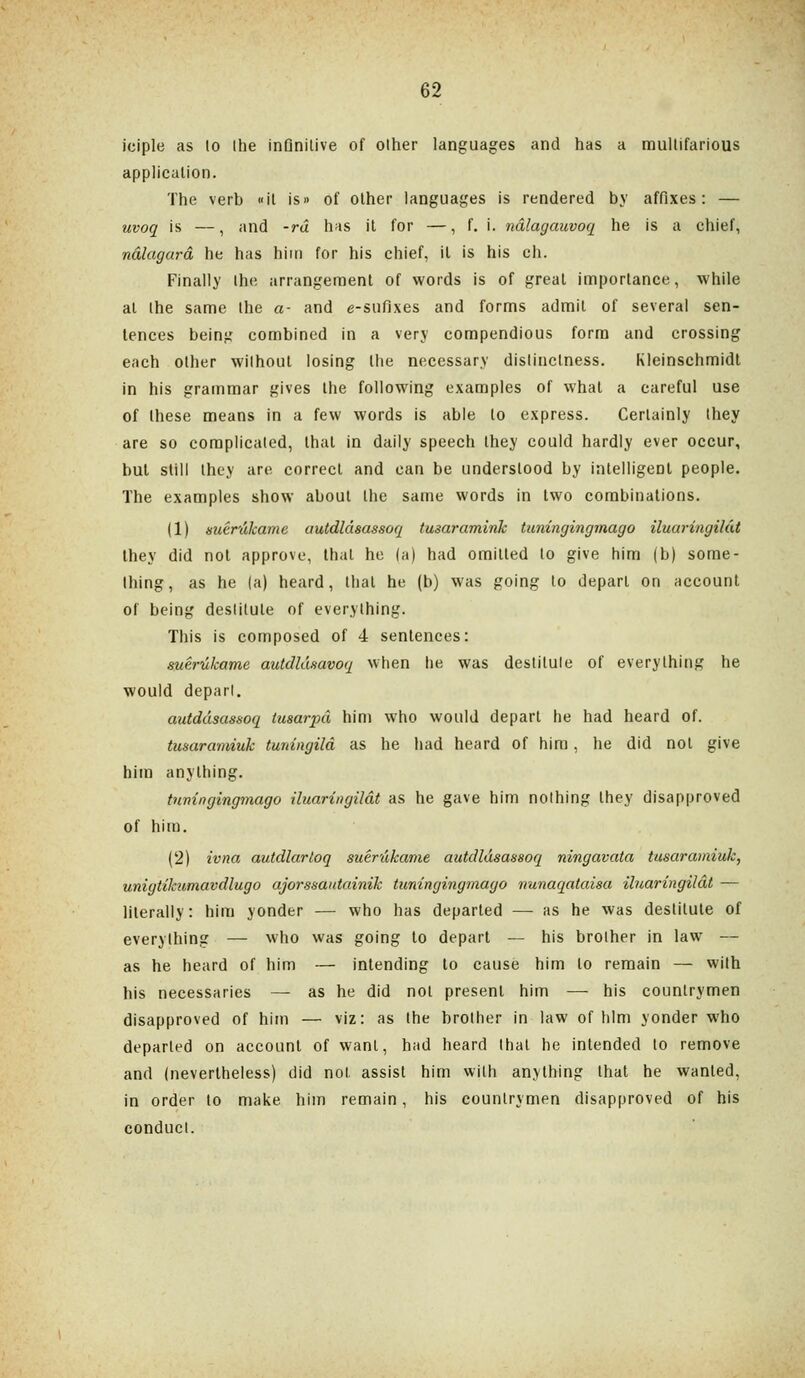
Full resolution (JPEG) - On this page / på denna sida - II. The Eskimo language, its admirable organisation as to the construction and flexion of words - Syntax

<< prev. page << föreg. sida << >> nästa sida >> next page >>
Below is the raw OCR text
from the above scanned image.
Do you see an error? Proofread the page now!
Här nedan syns maskintolkade texten från faksimilbilden ovan.
Ser du något fel? Korrekturläs sidan nu!
This page has been proofread at least once.
(diff)
(history)
Denna sida har korrekturlästs minst en gång.
(skillnad)
(historik)
participle as to the infinitive of other languages and has a multifarious
application.
The verb «it is» of other languages is rendered by affixes: —
uvoq is —, and -râ has it for —, f. i. nâlagauvoq he is a chief,
nâlagarâ he has him for his chief, it is his ch.
Finally the arrangement of words is of great importance, while
at the same the a- and e-sufixes and forms admit of several
sentences being combined in a very compendious form and crossing
each other without losing the necessary distinctness. Kleinschmidt
in his grammar gives the following examples of what a careful use
of these means in a few words is able to express. Certainly they
are so complicated, that in daily speech they could hardly ever occur,
but still they are correct and can be understood by intelligent people.
The examples show about the same words in two combinations.
(1) suêrúkame autdlásassoq tusaramink tuníngingmago iluaríngilát
they did not approve, that he (a) had omitted to give him (b)
something, as he (a) heard, that he (b) was going to depart on account
of being destitute of everything.
This is composed of 4 sentences:
suêrúkame autdlásavoq when he was destitute of everything he
would depart.
autdásassoq tusarpâ him who would depart he had heard of.
tusaramiuk tuníngilâ as he had heard of him, he did not give
him anything.
tuníngingmago iluaríngilât as he gave him nothing they disapproved
of him.
(2) ivna autdlartoq suêrúkame autdlásassoq ningavata tusaramiuk,
unigtíkumavdlugo ajorssautainik tuníngingmago nunaqataisa iluaríngilât —
literally: him yonder — who has departed — as he was destitute of
everything — who was going to depart — his brother in law —
as he heard of him — intending to cause him to remain — with
his necessaries — as he did not present him — his countrymen
disapproved of him — viz: as the brother in law of him yonder who
departed on account of want, had heard that he intended to remove
and (nevertheless) did not assist him with anything that he wanted,
in order to make him remain, his countrymen disapproved of his
conduct.
<< prev. page << föreg. sida << >> nästa sida >> next page >>